If you frequent social media, watch the news or happen to overhear a conversation in a pub or coffee shop, you’d likely think everybody in the country is unhappy. Stories of decline seem to dominate our media landscape.
However, one reporter found a new outlook on life from our very own Monmouthshire. Niels Posthumus, the UK correspondent for reputable Dutch news outlet Trouw recently wrote an uplifting take on modern life in Monmouthshire, claiming the South-East of Wales region “has been one of the happiest regions in the country for many years.”
Niels had heard much negative press about UK life over the summer of 2024, such as protests, riots, economical downfall, distrust in the government, and the repeated phrase “broken Britain.” The reporter then decided to investigate if the UK was really like this.
In his research, he discovered places that have been designated 'the happiest place to live' in the UK. Monmouth comes in that list. The top four this year were Richmond (Surrey) Winchester (Hampshire), Monmouth (Monmouthshire), and Wokingham (Berkshire).
As part of his research he stumbled upon Monmouth u3a, an organisation that aims to promote lifelong learning and social interaction, providing opportunities organised by members for members to join, discover, learn, make friends and have fun and makes glowing references to the organisation in his article, following interviews with members such as Ann Spary, Iain Crawford and the group’s chair, Averil MacDonald.
So what exactly did Niels discover? Here’s why Monmouthshire might be one of the happiest regions in the country.
Geography
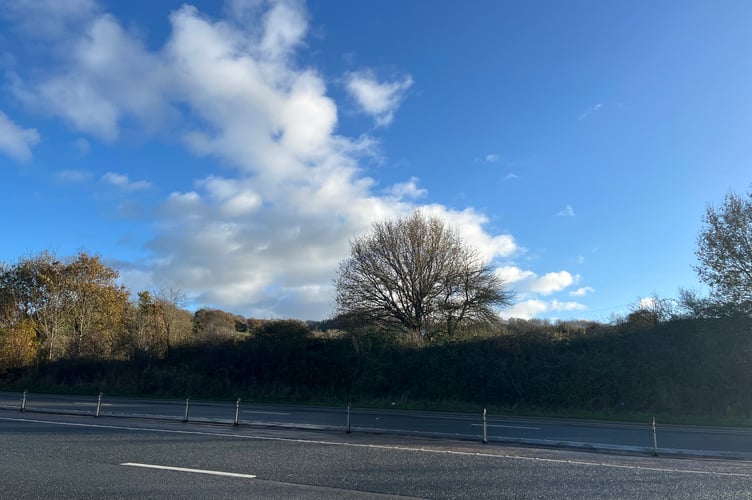
Monmouthshire has an intriguing geography. It appeals to residents and tourists alike by much more than its aesthetically-pleasing nature. The land and surrounding mountains breathe a sense of optimism to those that wander the region.
Niels said: “In the streets of Monmouth there's little sign of all this pessimism. The sun is shining, and the town is bustling. In the old town centre, scenes for Young Sherlock, a TV series about the younger years of the famous British detective Sherlock Holmes, are being filmed.
“It’s not an unusual sight. ‘Monmouth lends itself well as a film set,’ says Averil MacDonald. She has lived in the town for over seven years now and is the chair of Monmouth u3a, a network organisation for (partially) retired people which helps them organise educational and social activities.
Ms MacDonald and her husband Al Vaughan gave Niels a little tour around their hometown. ‘It even rains less here than in most other parts of Wales,’ explains Mr Vaughan. ‘The nearby Brecon Beacons mountains block a lot of the wet air coming from the west.’
Monmouthshire’s rural nature may also be something that British people aspire to live in. Niels said: “It’s precisely how most Brits prefer it. They have a strong desire for rural life, often referred to as ‘the good life’. Research commissioned by Country Life Magazine found that nearly two-thirds of Brits would actually prefer to live a rural life.”
Niels also points out that despite some areas of Monmouthshire being affluent, there are still plenty of affordable places to live, unlike some rural areas near London.
Timelessness
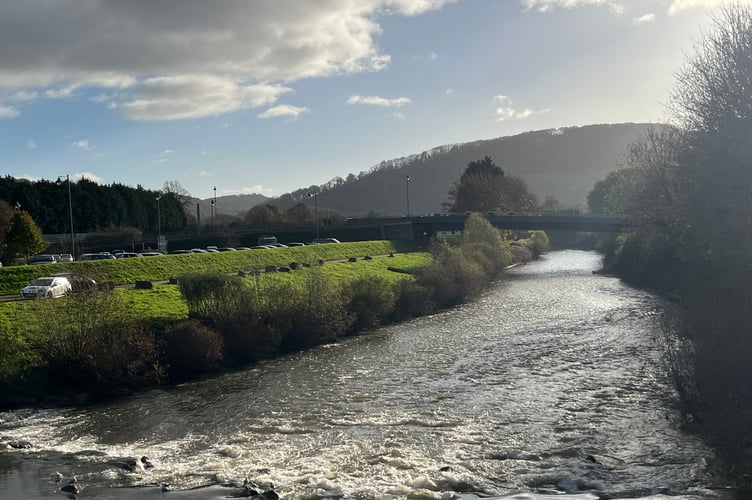
It’s common for us to revel in nostalgia. Indeed, for many, it’s an enjoyable part of everyday conversation, and something to look forward to during our free time, especially over a hot cup of tea or a cold pint.
But what if the ‘days of old’ never left? Monmouth seems to have retained the golden years, making it a timeless place to live, work and tour.
“Niels says Monmouth is a time capsule where little has changed since the 1950s,”says Ms MacDonald. “ As a result there is no ugly modernist architecture, no widened roads or redevelopment. Many buildings are listed as historical monuments, including the Savoy Theatre, which also serves as a cinema. It’s like stepping into the 1930s. It’s the oldest theatre in Wales that is still in use and was recently renovated with the help of National Lottery funding. Quite often, big names perform here,’ says Ms Vaughan adding, “It’s a popular place for well known comedians to try-out new acts.’”
Community

As a journalist, I’ve been fortunate to report some of the biggest examples of Monmouthshire’s spirit as a community, such as fundraisers, voluntary work and organisations like Monmouth u3a and Niels was also able to see how the those in the community look after one another which could likely be a contributing factor in the region’s happiness.
He said: “Like much of what happens in Monmouth, the theatre runs entirely on volunteer efforts. The town’s proactive atmosphere, coupled with a strong sense of community, is what residents say helps sustain so many social and cultural amenities that have disappeared from most other rural parts of Britain in the latter half of the 20th Century.”
Community spirit was also at the heart of Niels’ interview with Cllr Tom Kirton. Niels said: “Cllr Kirton praises the many community initiatives in his town as well. ‘It’s a pleasure to be a council member in Monmouth’ he says. “Whenever government funding becomes available, there are always plenty of great projects ideas to invest in. ‘There’s a strong let’s make it happen mentality here in Monmouth!’”
Recognisable

Monmouthshire has long been used for television, films, music and literature. There is an argument that, if your home is receiving recognition by national and international media, you gain a stronger affinity for it.
Monmouthshire has been used for Netflix’s Sex Education and Young Sherlock, and was the birthplace of some incredible projects. As Niels explains: “Monmouth has long left its mark on British pop culture, even in music. In the 1970s, the band Queen recorded their classic ‘Bohemian Rhapsody’ at the world-famous Rockfield Studios, just a five-minute drive outside the town. And in the 1990s, Oasis recorded their hit Wonderwall there too.”
Dogs

The British people have long been known for their love of animals, and in particular, dogs. Monmouthshire is no exception to this. If you take a leisurely stroll through the rural countryside, or the bustling streets of Abergavenny and Monmouth, you will undoubtedly pass dog-walkers.
Indeed, the optimistic nature of Monmouthshire’s residents seems to be symbiotic with their furry-friends. Niels’ interview with Ann Spary demonstrates this point incredibly well. Ann runs a group 'Walking with Dogs' and sometimes another group “Socialising with Dogs” where people come along with or without dogs and enjoy the opportunity to meet other and enjoy a cup of tea or coffee.
Niels said “Undoubtedly, it’s initiatives like these that make the Monmouthshire region such a pleasant place to live. Monmouth, with a population of around 10,000, has consistently ranked in the top three happiest places in Britain.”
He added: “Even the dogs seem happier in Monmouthshire. Ann Spary’s brown cocker spaniel, Callie, wags her tail enthusiastically as soon as she’s allowed out of the car at the top of The Kymin hill in southern Wales. ‘Come on, madame,’ her owner encourages her. ‘She’s not very young any more, but she’s got such a happy disposition. I often say: she’s a twelve-year-old puppy.’
“It’s also definitely not a bad place to be walked as a dog. The view from The Kymin is stunning. The hill rises near the border with England, overlooking the valley of the River Wye. Nearby is the town of Monmouth, nestled among bright green, rolling meadows and patches of woodland that, as the leaves change colour in autumn, looks like an impressionistic palette.”
Inclusivity
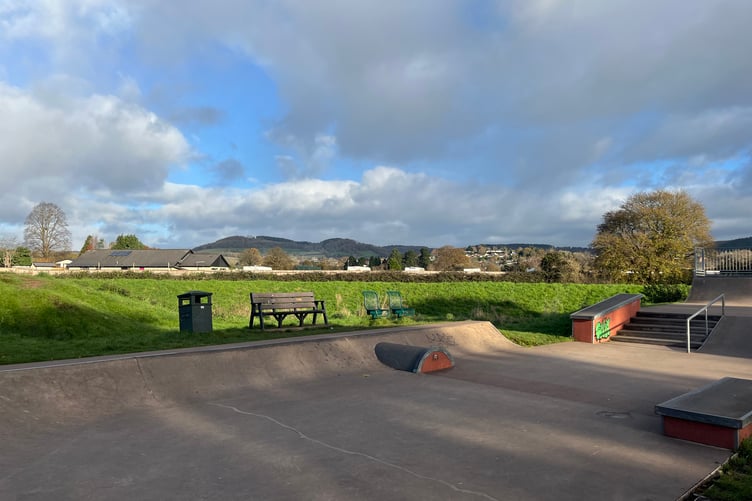
One of the criticisms of Monmouthshire, as per Niels’ article, is that the region only seems to cater for the older generation. However, this might be an unfair assertion. You need only to head to Monmouth’s Skate Park, which has seen its car park extended and developed this year.
Typically, skating is seen as a younger-persons’ pastime. However, as Niels referenced, the park frequently sees use from adults, teenagers and children. Indeed, it is impossible to assume that an activity is simply for one type of person anymore; everybody is welcome in the Monmouthshire community.
One example is Iain Crawford, who offers Welsh classes for beginners every other week. While apps such as DuoLingo have seen success, so have traditional-styled classes.
Summary
So, what is it that shields Monmouthshire from the negativity all around? Why is it that the region is among the happiest in the country?
Well, from what Niels and I have examined, it’s a mixture of things. The natural beauty, the community’s strength and inclusivity, its ability to adapt to the times but not be overcome by modernity, its national and international recognition, and of course - the happy dogs of the community!
It’s perhaps unsurprising therefore, that residents continue to live here, the community and local businesses continue to thrive, and many flock here from lands afar.
If you want to read Niels Posthumus’ full article for a fee, you can search online for “Monmouth: the British town where things are going well”, written for Trouw.
More information about the organisation, Monmouth u3a, which is open to all, can also be found online.

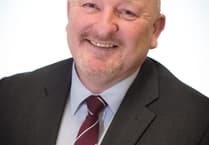
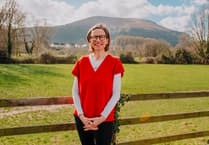


Comments
This article has no comments yet. Be the first to leave a comment.